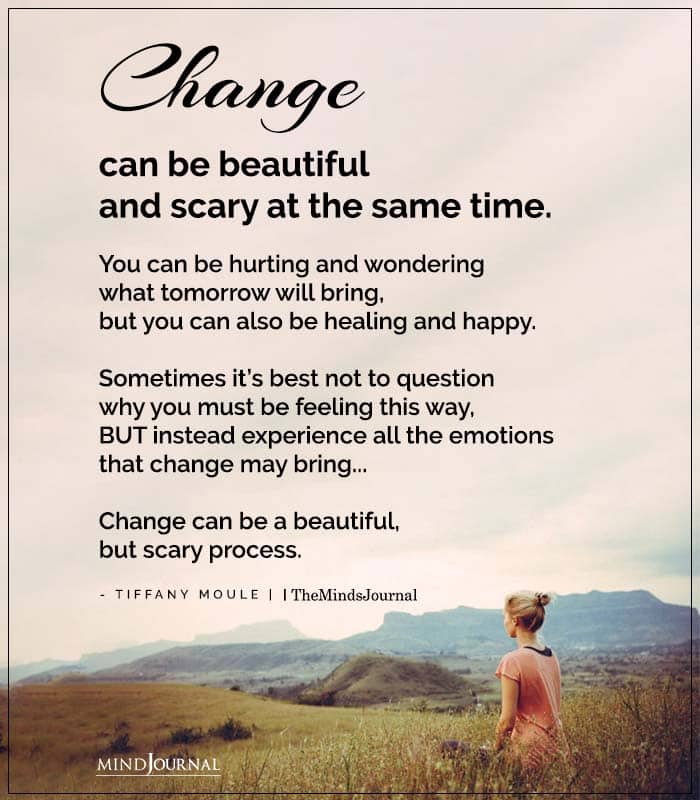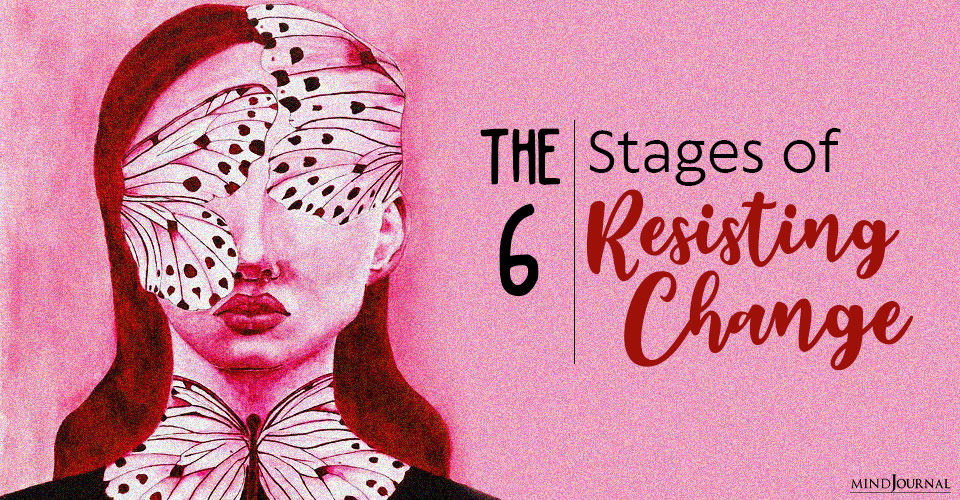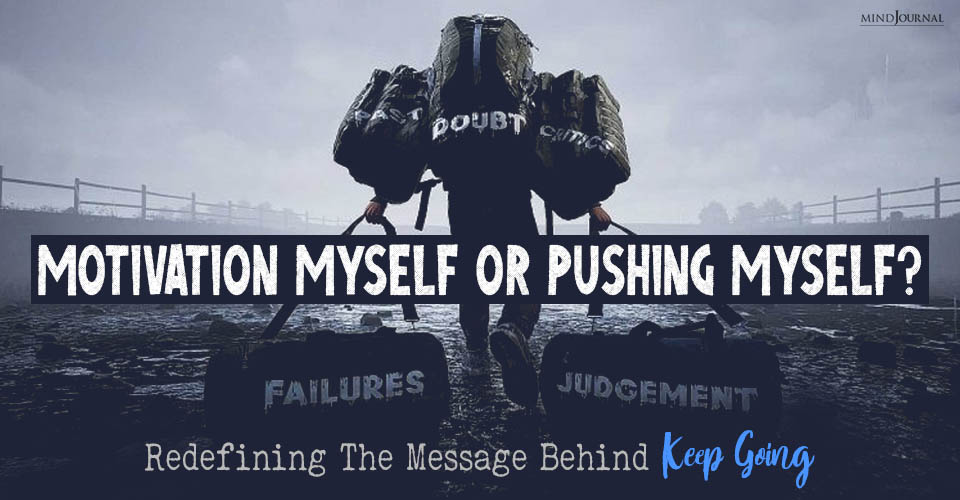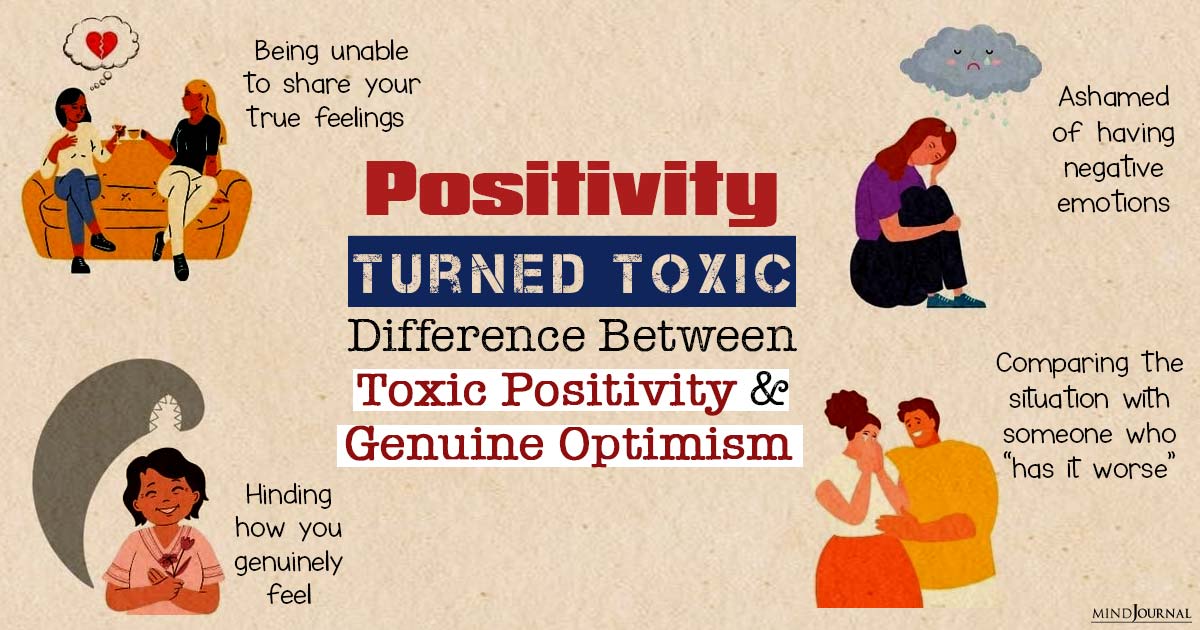Change is the only constant. As easy as it is to say, most of us are not ready to get out of our comfortable cocoon. Hence, we resist change which comes from our fear of the unknown. We get used to our lifestyle so much (even if we don’t like it), that we are unwilling to adapt to the new circumstances or the transformations in life. Here are the stages of our natural opposition to change.
Change Is Never Easy
Whether you’re someone who prefers the comforts of home or you’re an adventurous spirit who loves to explore, change can be scary – even in the best of circumstances!
Even though we all have a natural desire for novelty and newness, the human psyche equates anything new or “unknown” with potential danger, and since we must face the unknown in order to embrace change, most of us instinctively gravitate towards the familiar, often avoiding change altogether.
Just to make matters worse, there’s a whole bunch of common clichés that tell us we should resist change at all costs. For example:
- You have to play the cards you’ve been dealt!
- Your fate is sealed – so just accept it!
- Once your bed is made, you have to lie in it!
Regardless of whether we’re rhetorical victims of the “cards we’ve been dealt” or we’re trapped in a “bed we’ve made,” we’re led to believe that we have little power to change, and therefore, once we make a major life choice, we must resign ourselves to the consequences – no matter how bleak.
As a result, we might pay the price by enduring problematic jobs, unfulfilling relationships, or challenging life circumstances. Fortunately, life comes with an automatic “fail-safe”!
Related: The Egyptian Symbol Tattoo You Pick Reveals What You Should Change In Life
Life’s “Fail-Safe”
While it may seem easier to stay in our respective comfort zones and resist change, the nature of life ensures that change is inevitable, and in fact, to compensate for any resistance, we each come equipped with an automatic “fail-safe” that propels us towards change – whether we like it or not.
However, make no mistake, we’re not talking about random change here, but rather, we’re talking about the type of change that moves us towards a higher purpose – and specifically, a purpose that is unique for each of us.
Much like an internal alarm, the “fail-safe” usually begins as a gentle nudge of dissatisfaction in some aspect of our lives. Even though we might be able to ignore this warning indefinitely, and we all have free will to do so, the longer we ignore the warning, the louder it becomes, and of course, this means that our “comfort zone” gets less and less comfortable, the more we resist change.
Therefore, if we’re willing to tolerate unfulfilling or difficult life circumstances or we’re waiting for a crisis to propel us into action, we set ourselves up for unnecessary challenges.
As the expression goes, “You can go the easy way or the hard way,” but either way, change is inevitable!

So, how can we overcome resistance and avoid unnecessary challenges while effectively navigating change?
Well, to answer this question, I’ve developed the “The 6 Stages of (resisting) Change!” Through this comprehensive guide, you’re about to learn how to:
- Identify your current “stage of change.”
- Understand the cost of resistance (what happens when you resist change?).
- Recognize and avoid unnecessary challenges.
- Embrace change by making conscious life choices (before challenges force you to…).
Keep in mind that by embracing change at any stage, we can avoid the unnecessary challenges associated with the next!
Stage 1 – The Stage of Complacent Discomfort
Unfortunately, our most important adult choices are often based on the limiting beliefs we inherited in childhood, and because our true dreams and desires are often overshadowed as a result, we may find ourselves chained to unfulfilling jobs or committed to ill-suited partners, or quite possibly, both!
Whether a job, relationship, or situation was not right from the start and we’ve been lying to ourselves for years or it was once a good fit but we’ve since outgrown it, the first stage of change is usually marked by a state of “complacent discomfort.”
Although a job or relationship might appear good at face value, and maybe nothing is really “wrong,” during Stage One, we begin to experience a sense of growing discomfort.
As a way to overlook this discomfort, we rationalize our circumstances and we find compelling reasons to “settle,” such as financial security, convenience, comfort, and/or emotional stability. Not to mention, if we’ve already invested time and energy into our current job, partner or situation, we might be afraid to lose that investment or the promise of future rewards. Or, maybe, we just don’t want to hurt someone we care about.
Moreover, if leaving a job or relationship results in the loss of one’s perceived worth, it’s common to deny the truth so that we can resist change at all costs.
We might also convince ourselves that we’re not good enough, young enough, or smart enough to start over, and if we believe that “we can’t do any better,” we naturally settle for less than we desire.
So, not only do we “settle,” we find ways to rationalize why we should!
As long as circumstances are tolerable and the rewards seem to outweigh the costs, we might be able to make peace with mediocrity during Stage One, and even though we know we’re settling, we grow accustomed to living this way.
Nonetheless, when the reasons to stay overshadow the desire for change, “complacent discomfort” might appear to be the path of least resistance. However, appearances can be deceptive….because in order to remain in less than ideal circumstances, we must “mindlessly go through the motions” day after day, and while we pretend that everything’s okay, we must deny our true feelings and desires.
As a result of ongoing denial and resistance to change, Stage One is often the longest stage, and not surprisingly, by the end of this stage, it’s common to experience some level of lethargy, hopelessness, and even depression.
During Stage One, the Universe provides a gentle nudge in the direction of change, but if that nudge isn’t enough to propel us towards change, we enter Stage Two….and this is when that nudge becomes a noticeable shove.
To make changes during Stage One:
- Listen to internal nudges, intuitive dreams and inner guidance.
- Pay attention to external signs; what’s life trying to tell you?
- Notice if you’re bored, dissatisfied or settling in any area of life – or if you’re rationalizing discomfort.
Related: 7 Stages Of Awakening You Have To Go Through To Achieve Enlightenment
Stage 2 – The Stage of “Coming to Terms”
As we enter Stage Two, we can no longer deny that we are unhappy or unfulfilled. We’ve grown tired of complacency – and we’ve grown tired of being tired!
We begin to realize that there is a long-term cost to avoiding the short-term pain associated with change. For instance, by avoiding the short-term pain of leaving a job we dislike, we’re faced with the long-term pain of losing valuable years in exchange for meaningless work.
Additionally, to avoid the short-term pain of a romantic break-up, we must endure the long-term pain of an unfulfilling relationship. Regardless of details, the cost of “settling” becomes undeniable during Stage 2.
Once we acknowledge the dismal quality of our current circumstances, we begin to contemplate change, and, just maybe, we come to terms with the fact that we are meant to be happy and fulfilled!
So, instead of putting others first all the time, we start thinking about ourselves, “What do I need in order to be happy?” “What do I want from life?”
As we analyze our lives and reprioritize our needs, suppressed desires and long-lost dreams often begin to re-surface, and unbeknownst to us at the time, one or more of these dreams could hold the blueprint for our intended destiny.
While we can choose to change at any stage and avoid the next, as long as conditions remain manageable, the easiest thing to do is often nothing at all, and when this is the case during Stage Two, we are catapulted into the “deadline stage.”
To make changes during Stage Two:
By approaching your life with complete honesty, ask yourself the following questions:
– What’s not working in my life – and why?
– If there were no conditions, what do I really want to do?
– If I could be anyone, who would I become?
– To have the life I really desire, what changes do I need to make?
– Lastly, if you’re not ready for a big change, a series of small but consistent actions can become significant stepping stones.
Related: 8 Major Twin Flame Stages – Are You Experiencing This?
Stage 3 – The “Deadline” Stage
During Stage 3, escalating discomfort turns into emotional pain and suffering, and as pain and suffering infiltrates our comfort zone and forces us out, we’re propelled into consciousness – and this is when we begin to really wake up and pay attention!
Now, without the shield of denial or the need to justify complacency, we are faced with the blatant facts of unfulfilling life circumstances. As we finally see through all the facades, we begin to reorganize our priorities and seriously contemplate options! Clearly, this feels like “do or die!”
Even though we might feel the pressure to make a decision, and we really want to leave an unhappy situation, we might not be prepared to take definitive action, and, as a result, we are pulled in two. In order to reconcile indecision, we might bide our time by setting a deadline for definitive action (ex: leaving a job or relationship). If this is the case, we might choose a designated date that is based on a milestone, such as a graduation or a retirement date.
Although we may keep our decision to ourselves, there’s now a foreseeable end to our despair, and whether weeks, months, or years away, we feel an immediate sense of relief. Finally, with a light at the end of the tunnel, we’re able to tolerate our remaining time.
However, even though we’ve made the hard choice and committed to a specific deadline, we’ve also given ourselves permission to prolong action and delay change.
While some people use deadlines as springboards into a new life during this stage, others don’t, and as a result, this strategy frequently backfires. You see, as the designated date draws near, all sorts of fears and objections often surface, and although some are logical, many are not.
Once we begin to second guess our decision, the reasons to stay start overshadowing the reasons to go, and if our minds become clouded with doubt, the clarity we once had is virtually lost.
Sadly, we may discover that we are no more prepared now than the day we first made the choice to change, and since we’re back at square one, we may have no idea what to do next! Consequently, that wonderful feeling of initial relief is often replaced by an impending sense of doom.
Although most people never make the connection, internal doubt and uncertainty can manifest as unexpected events that interrupt our departure plans. In other words, when we’re afraid to do something, we might unknowingly manifest plenty of tangible reasons not to do it!
Related: The Kubler Ross Change Curve: Understanding The 5 Stages Of Change
For example:
– A time-critical project has to be completed.
– The person we are leaving suddenly needs our help.
– A family crisis derails our plans.
– Some type of disability requires assistance.
– Financial issues immobilize our departure.
– An exit strategy falls apart (ex: we lose a new place to live or work).
Once we have a valid excuse to postpone our plans, we may feel a temporary sense of relief. However, if we use excuses to resist change, we naturally attract more excuses, and consequently, we set ourselves up for unnecessary challenges.
Nonetheless, the moment we pass our self-imposed deadline without taking action, we move on to the next stage – and this is when we reach the “tipping point.”
To make changes during Stage Three:
- If you make a deadline for definitive change, make sure that you’ll be ready and able to take action when the date approaches.
- Prepare well in advance; mentally, physically, emotionally, spiritually, logistically, etc….
- Don’t wait to the last minute to communicate with those involved.
Stage 4 – The “Tipping Point” Stage
“In order to align us with our highest path, the Universe may orchestrate a “tipping point” that propels us toward change.”
During this stage, current circumstances inevitably deteriorate beyond acceptable limits until we eventually reach a “tipping point,” and this could manifest as a reduction in pay, demotion in status or title, intensifying relationship issues, or virtually anything that might push us over the edge.
Regardless of details, when tolerable circumstances exceed a personal “breaking point” and become intolerable, the excuses to resist change become meaningless!
Moreover, when emotional pain and suffering escalates beyond a certain threshold, an internal switch is triggered and we are catapulted into action. Although we might have been on the fence for years (trapped in indecision), suddenly, there’s no longer a choice, and, when this occurs, change can be virtually instant!
Oftentimes, this is when “something snaps” inside, and after months or years of painful complacency, we suddenly pack our bags and leave.
However, if our pain threshold is high or the fear of change is still greater than the pain, we could remain stuck where we are – resist change. So, even though we might be drowning in emotional quicksand, we are still willing to live in despair!
Unlike the “tipping point” stage where you still have a choice, the next stage marks the “point of no return.”
To make changes during Stage Four:
- Do your best to make peace with the facts.
- Don’t fight the tipping point.
- The quicker you surrender and the easier you let go, the better things will flow.
Related: Wheel of Emotions – The Perfect Tool To Better Understand Your Emotions
Stage 5 – The Stage of Crisis
By this stage in the game, if you still resist change, the next wake-up call could become a pivotal turning point.
Oftentimes, a drastic wake-up call manifests as an unexpected crisis that forces us into action, and this could mean that we get fired from a difficult job or our partner suddenly leaves – or we could even experience a personal illness.
Once crisis forces us out of our comfort zone and we no longer have a say, we are beyond the point of no return. As a result, we are often stripped of the lies we’ve been living and we lose whatever we’ve been holding onto under pretense – specifically, any false sense of security or worth.
Not surprisingly, due to the “non-voluntary displacement” experienced in this stage, it’s common to experience chronic depression or hopelessness. However, just to be perfectly clear, none of this is due to punishment nor karma. Even though we might call it a crisis, it’s really a divine intervention where a loving Universe is conspiring for our wellbeing.
Embracing change during this stage often feels like we have no choice, but no matter how it might feel, it can be the beginning of a whole new life!
However, if we somehow still refuse to change, the next stop is Rock Bottom!
Related: 5 Lessons That This Crisis Taught Us
To make changes during Stage Five:
- Look at the bigger picture.
- As you try to focus on the upside, do your best to let go of the downside.
- Stop clinging to your comfort zone.
- Make sure to get good emotional support from a friend or professional – and don’t be afraid to ask for help!
Stage 6 – “Rock Bottom” Stage
Even though we might have been permanently “kicked out” of our comfort zone in the last stage, if we make it to this stage, we’re somehow still resisting change, and, if we continue to resist, we’ll inevitably discover that the quicksand in which we’re drowning might actually have a bottom – rock bottom!
During this stage, we’re either ejected from a familiar life or derailed from a presumed trajectory – and this could mean that we may lose everything.
Despite the fact that we may be desperate to regain a sense of security or status quo, we might waste time and energy ruminating about mistakes we’ve made or blaming others for our dismal fate, or, quite possibly, seesawing between the two!
Even though we might have spent years or decades trying to control every aspect of our lives, if we want a better future, we first have to let go of everything that doesn’t work. Not only do we have to let go of all the opportunities that never came to pass, but we also have to forgive ourselves for all the mistakes we’ve made, and in the process, we must purge self-pity, regret, guilt, and anger too.
Since we can no longer pretend to be who others want us to be, we must courageously peel away the false self, layer by layer, until we discover who we really are and what we really want.
As we take responsibility for our own fate and we’re able to make conscious choices that support our True Being, we are able to create the space for new opportunities to arrive.
Once there’s a light at the end of the tunnel, we may come to realize that the Universe had closed every door but the one leading to our deepest dreams and desires.
Never too Late!
Regardless of how it might seem, it’s never too late to take charge of your fate!
Believe it or not, you have the power to deal yourself with a brand new hand at any stage in the game. In fact, the quicker you wake up, figure out what you really want and give yourself permission to have it, the easier everything becomes!
Never settle for mediocrity or the mundane when you can live your dreams!
Copyright © Nanice Ellis, 2019.
Written By Nanice Ellis
Originally appeared on: Wake Up World
Free Spiritual Awakening Series!
Are you ready to remember who you really are and connect with your True Self? No matter where you are on your path, this intensive 7 part series will support your journey to awakening. Sign up now at https://www.nanice.com/awaken











Leave a Reply